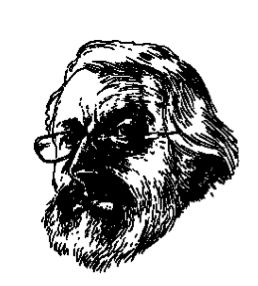John Gardner famously said that all novels have one of two plots: Someone goes on a trip, or a stranger comes to town. The writer Randall Kenan has said that all novels have one of three plots: Cinderella (in which you go on a trip), Goldilocks (a stranger comes into your house), or Cain and Abel (someone in your house tries to kill you).
The longer fictions of J. P. Donleavy all have the same plot, nicely summarized in his first novel The Ginger Man. Boil his eleven novels and two novellas down to a paragraph and you’d get the following: “I guess all I want out of this life is a decent fire in the grate, a rug on the floor and a comfortable chair in which to sit and read. And just a few quid I don’t have to slave for and mix with people with money… But Jesus, when you don’t have any money, the problem is food. When you have money, it’s sex. When you have both it’s health, you worry about getting rupture or something. If everything is simply jake then you’re frightened of death.” The hopeful thing about this speech is that it’s spoken by Kenneth O’Keefe, a virgin, poor, and frequently cold and hungry student at Trinity College in Dublin. Perhaps actually having sex or getting rich or warming yourself by a fire provides some satisfaction.
Most of Donleavy’s heroes go from riches to rags to riches with dizzying speed, if not the ingenuity shown by Sebastian Dangerfield in The Ginger Man. A law student who spends a lot of time going chug chug in pubs, Sebastian depends on his wife’s wealthy father to support her and their baby girl. Challenged by Kenneth to “pop down with that English accent of yours and get some credit” at a grocery store, Sebastian responds by taking an axe to a blue blanket that seems to be one of his family’s few valuable possessions. But wound around his neck, a scrap becomes a scarf in Trinity’s rowing blue—the only letter of credit Sebastian needs.
With one thing to say, why not write just one novel? First published in 1955 by the pornography imprint of Marcus Girodias’s Olympia Press—stamping the book as even dirtier than Lolita, published that year by Olympia’s literary imprint—The Ginger Man won Donleavy fame, fortune, and comparisons to Nabokov and Joyce. But what if Nabokov went on to write about the nymphets of Lambert Lambert and Otto Otto? What if Joyce went on to tell the story of The Odyssey through Leopold Bloom’s adventures on June 17, 1904, the day after...
You have reached your article limit
Sign up for a digital subscription and continue reading all new issues, plus our entire archives, for just $1.50/month.
Already a subscriber? Sign in





